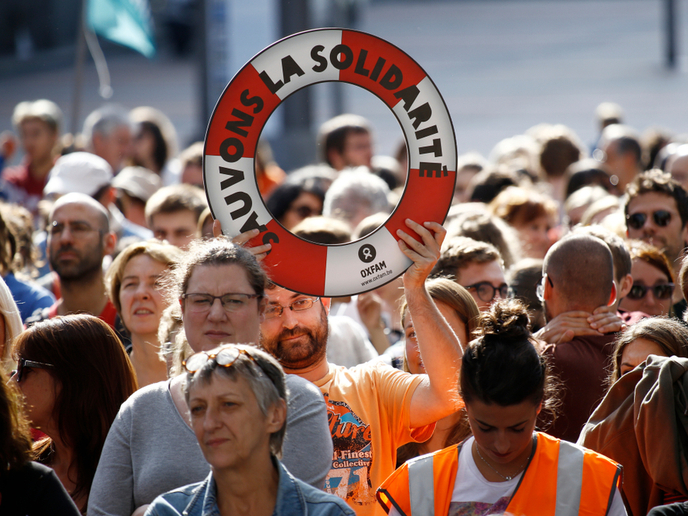Research collaboration helps deliver evidence-based migration and integration policy-making
While evidence-based knowledge of asylum, integration and migration issues is increasing, synergies among different groups of experts remains underdeveloped. Researchers and stakeholders are well-connected within their own communities, but despite an interest in wider collaboration, there are few structured opportunities. The EU-funded ReSOMA project developed a platform to connect experts working on asylum, integration and migration topics, so that synergies could generate evidence-based EU policy-making. Over the 2 years of the project, ReSOMA engaged more than 1 200 experts working on these issues to consult on 18 high-impact policy topics on which EU-level decisions were likely to be taken. Two annual rounds of consultations resulted in 80 publications that looked at the implications of European decisions on national and local policies and practice, while also offering recommendations. Amongst the topics that the project explored, one that attracted particular attention was that of the criminalisation of humanitarian assistance to migrants. “ReSOMA research found that between 2015 and 2019 at least 158 individuals were investigated or formally prosecuted for offering humanitarian assistance to migrants and refugees across 11 European countries, mainly as a result of the EU Facilitation Directive. Our evidence was widely echoed in several European news outlets,” explains project coordinator Guia Gilardoni. The project’s ‘criminalisation of solidarity’ report, which outlined further the team’s research results in this area, gained coverage from 17 international and regional media outlets, including CNN, Politico Europe, TIME, EUobserver and openDemocracy.
A platform for identifying and responding to policy issues
At the beginning of both years of the project – with input from EU and national stakeholders, researchers and policy-makers – ReSOMA identified nine urgent topics for investigation. Project partners took these topics and collated evidence through consultations with specialist researchers, policy-makers and practitioners from European civil society and local authorities. The consultations mapped available policy options, investigated policy perceptions and proposed recommendations, all collated in Final Synthesis Reports. At the heart of the project was the interactive ReSOMA Platform, coordinated by ISMU and designed by Ernst&Young, which enabled the virtual community of practitioners, policy-makers and researchers to collaborate online. The make-up of the consortium, with partners well-networked in both research communities, ensured wide outreach at different levels of governance, with evidence-based recommendations likely to attract broad support among policy-makers. In some cases, the groundbreaking results raised great interest among the public and fed into the wider European political debate, as reflected in workshops held by ReSOMA with different policy-makers.
Continuing to inform policy
While the ReSOMA team will continue to support collaboration between academics and stakeholders, at the end of the project the platform (and its community) will be integrated into IMISCOE, Europe’s largest network of scholars in the area of asylum, integration and migration, so that it can continue to respond to emerging evidence-based policy needs. “The project provided migration stakeholders with opportunities not only to challenge each other through structured dialogue, but also to work together on specific topics and come up with solutions to real-life, urgent problems,” says Gilardoni. “ReSOMA has championed a new way of gathering evidence that is both multi-stakeholder, context-specific and policy-relevant.”
Keywords
ReSOMA, policy, migration, integration, asylum, policy-making, policy recommendations, criminalisation, solidarity, migrant







